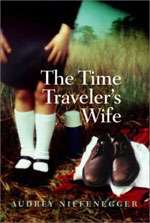By Dara Girard
“Don’t judge each day by the harvest you reap, but by the seeds you plant.”
Robert Louis Stevenson
Like any rambunctious two year old, I hate hearing the two-letter ‘N’ word—No. But as a writer, I have heard it often and in many different guises:
“Your work doesn’t fit our present needs”—which means—“No, we don’t want your story.”
“I don’t feel enthusiastic enough about your novel to offer representation”—which means—”No. I don’t want to work with you!”
“You’re a talented writer, but we are inundated with submissions”—which means—“No, better luck elsewhere.”
“No” scribbled hastily on the same query letter I sent in—which needs no further explanation.
Sometimes these rejections take weeks, sometimes months and sometimes years. Yes, years! I once received a rejection five years after I’d sent my work in. Obviously I’d moved on by then.
But as much as I hate receiving a ‘No’, whether standard or personal, I appreciate the effort someone takes to respond. I absolutely abhor the ones who do not reply. I find no-replies annoying and rude, but that’s the way business is done these days.
 I like the quote on the blog Literary Rejections on Display—Remember this: Someone out there will always say no.
I like the quote on the blog Literary Rejections on Display—Remember this: Someone out there will always say no.
Let’s face it, rejection is not fun, especially when it comes in groups or bunches. I tend to get mine in threes. Yep. I call it the ‘Triple Threat’—three rejections (or ‘No thank yous’) in one day. Unfortunately, it has been a common occurrence in my writing life, and at times it hurts. However, I have come to realize that receiving “No thank you” is part of being in the writing business and don’t let anyone fool you, it is a business.
The writing life is not one of leisure though many films like to end with an author pounding out a story in her spare time then getting a huge advance and movie deal—Fade to Black.
In the real world publishing can be just as cutthroat and competitive as any other business. I found out early on why many talented writers disappear—talent isn’t enough. When I started my little writing enterprise I knew I had many departments, but two were crucial to my survival. One department was Research and Development or R&D, the second was Sales and Marketing (which I occasionally refer to as S&M for many different reasons).
R&D is fun. Ah the joy of creation! S&M is not always fun (clean up your minds). In sales it’s all about business. And any salesperson will tell you that in order to get a sale, you have to get through the many ‘Nos’ to get a ‘Yes’.
I like the quote by Robert Louis Stevenson because it suits my business. My paternal grandfather was a very successful farmer and I grew up hearing a lot about farming principles. (So much so, that in the third grade I decided I was going to be a farmer by day and chef by night—someone needed to cook the food I planned to grow!) One of my earliest lessons was that farming isn’t an exact science. Crops can get wiped out for many reasons—bad weather, bug infestation, unwanted animals, poor soil, etc.—all of which are out of ones control. That single lesson helped me as a writer.
For those of you who like a stable world, the publishing world isn’t for you. Many authors will tell you, myself included, that in the beginning (and even way beyond the beginning) the writing life might consist of feast or famine. You may get one or two contracts and then nothing else for months or years. You may get excellent royalty checks that suddenly dry up. I say you ‘may’ because there are always exceptions and those are the ones you read about. More often writers grow their careers through hard work and many books—like authors Dean Koontz and Nora Roberts—before they skyrocket.
 These authors knew the key to writing success—planting seeds. Each book, each effort (both visible and invisible) was a seed that they are now harvesting years later.
These authors knew the key to writing success—planting seeds. Each book, each effort (both visible and invisible) was a seed that they are now harvesting years later.
In the publishing world, there are so many variables that you, as a writer, cannot control. Your actions are all that you can vouch for. My father shared this fact with me when I was about six years old and now I’m telling you—plant your seeds then let go.
You can write a fabulous story or play, but you can’t make it a hit.
You can send out a manuscript or article, but you can’t make it get accepted.
You can write with passion, but you can’t make your work beloved.
You can do your very best, but that doesn’t guarantee that you’ll get rewarded with good reviews or a big royalty check.
But that doesn’t matter because the outcome isn’t the most important thing. It’s the process. Planting seeds is about living in the realm of possibility.
Uncertainty is the writer’s lot, but there is one thing that is certain—if you don’t plant seeds you won’t have a harvest. My grandfather had to plant seeds each and every season in order to have a harvest. He never knew which seeds he would plant would reap the greatest reward, but that wasn’t his concern his job was to plant. So he planted many different crops and did his best.
How does this translate to the writer? Your seeds are your actions. Draft a story idea, submit a query to a magazine editor, write a kind note to a fellow writer, enter a contest, offer a workshop – let your imagination fly. Sometimes you’ll reap a harvest you didn’t expect. A rejection of one idea may lead to the acceptance of another, a much needed critique or more. Remember, you are the master of your own destiny. No matter what happens, no matter how many failures come your way never stop planting. I promise you one day your harvest will be extraordinary.
So, what seeds can you start planting today?
***
Leave a comment or question for Dara to enter to win WORDS OF SEDUCTION. If you’re reading this post through a feed on Facebook, Goodreads, or another social network, please visit the comment trail at www.museinterrupted.com to be eligible for the draw.
To read Dara’s bio and the back cover blurb for WORDS OF SEDUCTION, see yesterday’s post. To learn more about Dara and her books, check out her website at www.daragirard.com.




